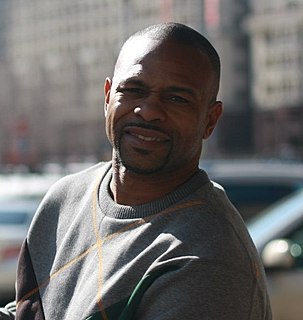A Quote by Janet Jackson
You don't know how many people come up to me and say, 'This child was conceived listening to you.'
Related Quotes
Television is just amazing - how many people see it and how many people recognize you, and I think once you've had the opportunity and have been in front of the public, it's very flattering to have people come up and say hello to you. It's a tremendous industry. I've been in places where people come out of the woodwork. And you would never think - small towns in France or traveling through Europe - and there are so many of those people there that recognize you, and you've been in their homes. I find it to be a very flattering thing.
I don't know where genre really comes from. I grew up with parents who were artists, and I was always interested in what music they were listening to and open to all kinds of genres. So it's nice to see that whole families come to my concerts. I like having an element in my music that is inclusive rather than exclusive, without being pop for the sake of it. It's not important to me how many people listen to it - it's more wonderful that it brings people who wouldn't usually meet into the same room.
Mainly I got to know about the atmosphere in the East Germany and how people felt, because I never experienced it physically. You can't talk, because everywhere there's someone listening in on everything you say, and you might get things wrong and be questioned or they come up and say, "Well, actually, we want you to work for us and if don't, we'll pressure you," and stuff like that. Living in a country like that, how do you get around it and still keep your dignity? I think it's one of the main questions.
I never was a person that wanted that life...I'm a leader not a follower. I don't care what they say, or what they're doing or what they're wearing. Go ahead, cos come Judgement Day, all of that won't matter. How many people did you help. How many people did you talk to. How many people did you try to encourage. How many people did you bring to God. That's what's gon' matter.
Parents become very good at not hearing the explicit words and listening instead to what the child means but doesn't yet know how to say: 'I'm lonely, in pain, frightened' - distress which then unfairly comes out as an attack on the safest, kindest, most reliable thing in the child's world: the parent.
You know, people come up to me saying, 'Watching you gave me the courage to come out to my parents,' or, 'I watched you and I decided to start doing drag,' or, people will just come up and say, 'It's you.' Like they can't even form sentences because they're crying because they're seeing someone they admired on television.
Listening is terribly important if you want to understand anything about people. You listen to what they say and how they say it, what they share and what they are reticent about, what they tell truthfully and what they lie about, what they hope for and what they fear, what they are proud of, what they are ashamed of. If you don't pay attention to other people, how can you understand their choices through time and how their stories come out?




































